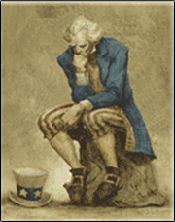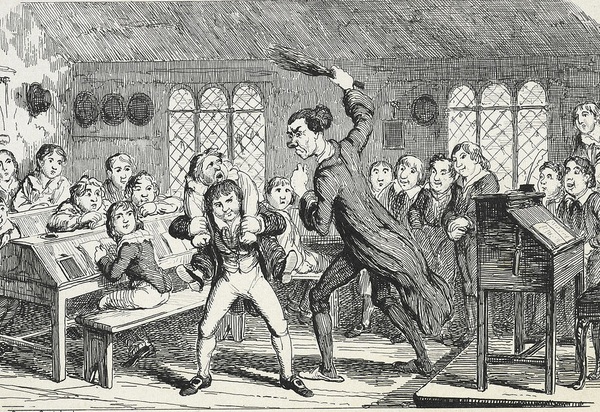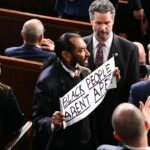
–>
February 4, 2023
Professors often complain about the current crop of students being less intellectually talented than when they began their careers decades back. Such griping is, of course, easy to dismiss — it has occurred for millennia. Unfortunately, this time around the grumbling may be true and not the usual nostalgia for “the good old days.” The anecdotal evidence from textbook reading levels, shortened college syllabi, scrapbook-like research assignments, proliferating college remedial classes, grade inflation, and the popularity of “gut” college majors such as Gender Studies, is indisputable. We have also invested hundreds of millions in our schools yet test results such as the SAT are flat over the past half century. Add the countless stories of illiteracy among high school “graduates” despite falling class size and expensive reforms. Judged by the standards of evolution, Americans may be going backwards.
‘); googletag.cmd.push(function () { googletag.display(‘div-gpt-ad-1609268089992-0’); }); }
The best evidence of this decline are data from the highly respected General Social Survey on mean IQ by decade among graduate students, undergraduates, and high school students (a tip of the hat to Charles Murray on Twitter). This is a complicated subject given how America’s demography has altered, and measuring IQ via surveys might be iffy, but the numbers, even if a bit unsure, are alarming.
These data are divided into three groups: those with high school diplomas, undergraduate degrees, and graduate degrees. Then the data are then divided by decades beginning in the 1960s through to the 2010 onward decade. The overall pattern is a steady decline in IQ scores for each group from decade to decade. For example, high school graduates in the 1960s had an average IQ of 99.3 but this figure declined so by 2010 and onward, it was 93.5. A similar drop occurred among college graduates — from 113.3 in the 60s to 100.4 in the 2010 decade. For those with graduate degrees, the fall was from 114.0 to 105.8.
These are depressing numbers. That in 2010 the average college student had an IQ of 100.4 (almost exactly our national average) signifies that we are miles away from trying to educate the brightest youngsters. Worse, with an average of about 100, many of those enrolled must score below 100 and thus suitable only for low-skill occupations. This picture may even be worse than these numbers suggest if we subtract out the many smart international students now enrolled in U.S. higher education.
‘); googletag.cmd.push(function () { googletag.display(‘div-gpt-ad-1609270365559-0’); }); }
This decline has wide-ranging implications for college teachers. Save at the most selective schools, many undergraduates are incapable of grasping complicated arguments, even unable to distinguish what the teacher explained as opposed to what the teacher personally believes. The statement “Many Germans thought Hitler a savior” becomes “the Professor said that Hitler was a savior.” Nor can many of these intellectually challenged youngsters grasp the idea that something can simultaneously be both good and bad. Try explaining that for a statement to be scientifically correct, it must in principle be amenable to falsification. Even a lame joke about affirmative action may be misunderstood as a hostile remark. And be careful about using supposedly racist words like “master bedroom” or “blacklist” that may offend some students unfamiliar with the non-racial origins of these terms. The upshot of these IQ-related limitations — and there are more — is that complicated, nuanced lectures are easily misconstrued, and with this confusion, professors run the risk of running afoul of the PC police.
 Consider, for example, the potential tribulations if a professor tried to explain to students that while slavery was a horrible institution and slaves were grievously mistreated, the plantation-based cotton economy was nevertheless highly profitable. Slaveowners were, in fact, often savvy capitalists in a world market using the latest agricultural technology to achieve a productivity not matched until a century post-Civil War. Moreover, slaves were so valuable that cheaper recent immigrants, often White Irish, not slaves, were instead hired for life-threatening jobs.
Consider, for example, the potential tribulations if a professor tried to explain to students that while slavery was a horrible institution and slaves were grievously mistreated, the plantation-based cotton economy was nevertheless highly profitable. Slaveowners were, in fact, often savvy capitalists in a world market using the latest agricultural technology to achieve a productivity not matched until a century post-Civil War. Moreover, slaves were so valuable that cheaper recent immigrants, often White Irish, not slaves, were instead hired for life-threatening jobs.
Unfortunately, explicating these complications can easily be misconstrued as defending slavery. To explain that the Constitution’s ban on importing slaves (Article I, section 9) when implemented in 1808 increased the monetary value of slaves and thus mitigated the most horrific treatment easily becomes “the professor said that slave owners were not entirely evil.” That is, he endorsed slavery. Sadly, this is a hard-to-win dispute on a campus where a student’s misinformed feelings often outweigh hard historical evidence. Better to avoid anything about the economics of slavery than risk a visit from a functionary anxious to root out racism. Political analysis becomes a damage limiting enterprise and thus misleading and cartoonish.
Such examples of easily misconstrued truths abound. So good luck to any professor who, for the sake of lively discussion, suggests that by enrolling women to college you lower the birthrate and thus underfunds the social welfare state as fewer workers pay taxes to support an aging population. Sexism! Or that eliminating fossil fuels to combat global warming might hurt millions of poor Americans whose jobs depend on cheap energy. Destroying the planet! Or that tough anti-discrimination laws encourage more automation or firms relocating abroad versus a Utopian workplace free of racial unfairness. Racism!
More generally, it is better to avoid anything that might possibly make anyone uncomfortable even if this discomfort results from misunderstanding. Challenging a student’s cherished beliefs by raising the inevitable trade-offs and the possibility of unanticipated negative outcomes is just too risky. While smart students typically enjoy the lively debate, even a professor playing devil’s advocate with thought provoking illustrations, the less able will often just be confused. Such students are likely more comfortable with simplistic good vs. evil. Woe to those who point out that a “good idea” might be less good if all the costs are included. In this simple-minded setting, no professor will ever get in trouble by denouncing evil and praising good provided that the easily offended agree on this moral universe.
The parallel is mass entertainment. Blockbuster movies and novels avoid ethical nuances and audiences refuse to be lectured about life’s painful trade-offs. Nor does the public want to hear about the problems when assessing conflicting evidence and the inherent uncertainty of today’s knowledge. Movies like the art house favorite Rashomon that dwell on complexities are far less popular than Top Gun. After all, movies are entertainment, not a college course requiring serious thinking. Better to leave the theater feeling good after watching a Tom Cruise action flick than have a head filled with the logic of international conflict.
‘); googletag.cmd.push(function () { googletag.display(‘div-gpt-ad-1609268078422-0’); }); } if (publir_show_ads) { document.write(“
A vicious cycle may occur as the IQs of college students continue to decline. Colleges need warm bodies to survive, and if intellectually marginal applicants can pay tuition, welcome aboard. Now, faced with students who are unable to grasp subtle distinctions and challenging material, professors will reasonably dumb down their courses and relax standards. As colleges increasingly resemble high schools, high IQ youngsters will avoid them, schools will be forced to dig deeper into the cognitive talent pool, and high schools may soon teach at grade-school levels. Who would hire such “college graduates”?
The upshot of this decline will be that many Americans enter adulthood without having been intellectually challenged. The phrase “mind expanding” will exclusively apply to psychedelic drugs, not higher education. Professors for their own survival will play it safe and avoid anything that might, somehow and in some way, offend those who complain when their cherished beliefs are disputed. The triumph of woke dullness. Absent this exposure to the give and take of competing ideas and all else that defines intellectual debate, honest disagreement will become “hate.” It all adds up to a perfect recipe for killing serious public discussions.
Image: Cruikshank
<!– if(page_width_onload <= 479) { document.write("
“); googletag.cmd.push(function() { googletag.display(‘div-gpt-ad-1345489840937-4’); }); } –> If you experience technical problems, please write to [email protected]
FOLLOW US ON
<!–
–>
<!– _qoptions={ qacct:”p-9bKF-NgTuSFM6″ }; ![]() –> <!—-> <!– var addthis_share = { email_template: “new_template” } –>
–> <!—-> <!– var addthis_share = { email_template: “new_template” } –>






